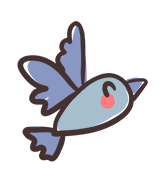Whoever said learning must be done in a quiet classroom with handwritten notes never heard a youngster laugh mid-lesson. Contrary to common thought, learning should be fun. Fun kids’ learning activities let numbers dance, letters sing, and science whisper along with curious winds.
Imagine a kid painting alphabets in vivid red and blue strokes, laughing as she transforms her arithmetic assignment into a treasure hunt. Fun learning sneaks past resistance, skirts pressure, and gently taps into a child’s interest. Play is more than just play—it connects imagination and comprehension and builds knowledge via laughter and fun.
Fun-based learning develops the complete kid, not just academically. It energizes the intellect, spirit, and emotional intelligence. Kids discover information, ways to think, feel, cooperate, and wonder. They learn more than textbooks in those joyous moments—baking to learn fractions, sprinting to spell words, drawing to grasp tales. As the world seeks creativity and sensitivity, education must loosen up.
Fun Learning Activity Ideas by Category
Brain-Boosting Indoor Games – Might be Very Effective Fun Learning Activities for Kids
Enter the realm of indoor marvels where learning disguises itself as laughter and curiosity. An attentive toddler flips over colorful cards in a memory match to find the twin ‘M’ or the elusive number eight. Brain dances and silent mind sharpening make it more than a game.
DIY board games, made on kitchen tables with hand-drawn Snakes and Ladders, teach spelling, counting, and strategy in the cutest manner. Include puzzles—jigsaw pieces strewn like quest clues. Each fit is thrilling, and each image teaches patience and reasoning. These are hidden classrooms, not hobbies. Joyful lessons show that the brain absorbs information like spring morning sunshine.
Creative Arts with a Learning Twist
- Paint alphabets using bright sponge-stamp letters
- Roll story dice to spark wild tales
- Create animal shapes with cut paper collage
- Finger paint vowels with rainbow color patterns
- Draw scenes to match favorite storybooks
- Build letter sculptures using clay or dough
- Make puppets to act out short stories
- Design flashcards with textured craft materials
- Trace shapes using string and glue art
- Craft number monsters with googly eyes and felt
- Illustrate daily routines as a comic strip art
- Assemble shape puzzles from magazine cutouts.
Outdoor Learning Adventures
Step beyond four walls and you enter a live, breathing classroom where the sky is the ceiling and the wind speaks in amazement. A nature scavenger hunt becomes exhilarating as kids hold lists and look for red leaves, money, and dragon skin bark. New vocabulary words and observation lessons are learned with every discovery.
Then comes the hilarious water balloon math throw, when answering an equation earns the privilege to aim and soak. Never have numbers felt so refreshing. In the sidewalk chalk spelling races, kids dash between letters, writing as they go, spelling through sunlight and squeals. Joyful learning grows under the skies. This expands in leaps, tumbles, and barefoot giggles.
Everyday Learning at Home
- Measure ingredients to learn fractions and volume
- Sort socks by size, shape, or color
- Plan grocery lists within a set budget
- Count utensils while setting the dinner table
- Estimate the time while baking cookies or cake
- Fold clothes into patterns by category type
- Compare item prices for math-based decision making
- Identify healthy foods using nutrition label facts
- Organize the pantry by food group or size
- Calculate recipe doubling with simple multiplication practice
- Create shopping lists by scanning kitchen inventory
- Match lids to containers for shape recognition.
Tips to Create Your Own Fun Learning Activities
Presence, not perfection, transforms daily experiences into significant learning. You must start with dinosaurs, fairy tales, or bugs to spark your child’s imagination. When learning emerges from curiosity, it becomes a personal journey. Like a bedtime tale, keep your activities age-appropriate, tenderly timed, and adaptable. Children are unique painters of imagination. What excites a six-year-old may confuse a ten-year-old. So, be flexible and follow their rhythm while creating a framework for fun learning activities for kids.
Do not wait for expensive materials. The best lessons are frequently in cereal boxes, rusty buttons, or a neglected measuring cup in your drawer. Simplicity stirs imagination more than anything. Most importantly, let them lead. Watch their eyes light up as they make the rules, paint, or ask the questions. Thus, learning becomes a dance between your instruction and their unlimited curiosity. That’s exactly when magic occurs.
Common Mistakes to Be Avoided
- Overloading activities with rules can stifle curiosity and natural learning
- Turning every game into a quiz removes the element of joy
- Ignoring free play overlooks its role in creative development
- Pushing too hard can turn fun into frustrating resistance
- Avoid activities that are too advanced
- Expecting perfection discourages experimentation in kids
- Not involving kids in planning reduces their sense of ownership
- Over-scheduling learning time can exhaust both the child and the parent
- Focusing only on results misses the magic of the process
- Using too many screens limits tactile, real-world learning experiences.
Go for Free Puzzle Games for Kids
Puzzle games are silent heroes in a world of distractions and flashing devices, challenging young minds gently. They want thinking, not speed. Attention, not noise. When free, they provide development without expense. Imagine a delighted youngster guiding cartoon animals through a digital maze or building a smiling dinosaur from bright shapes. Games teach logic, patience, spatial awareness, and tenacity in short mental marathons. Taps, slides, and matching pieces are silent color and movement lessons.
Free Puzzle Games for Kids transform screen time into think time by completing numerical grids, linking matching photos, or revealing hidden patterns.
The Benefits of Fun Learning Activities for Kids
- Enhances memory and comprehension
- Increases focus and attention
- Builds confidence through play
- Sparks curiosity and wonder
- Encourages creative expression
- Promotes critical thinking skills
- Reduces learning-related stress
- Fosters independent exploration
- Supports emotional intelligence growth
- Boosts active participation
- Develops fine motor skills
- Makes concepts more relatable
- Strengthens social interaction skills
- Reinforces positive learning habits
- Cultivates love for learning.
Concluding Remarks
In the broad mosaic of childhood, fun enhances learning. When pleasure and education combine, kids learn through experience. The proverb says, “The best learning is the one your child doesn’t even realize is happening.” That’s meaningful education’s gold dust.
Also Read: Building Patience and Focus: Life Lessons from Online Puzzle Games for Kids


